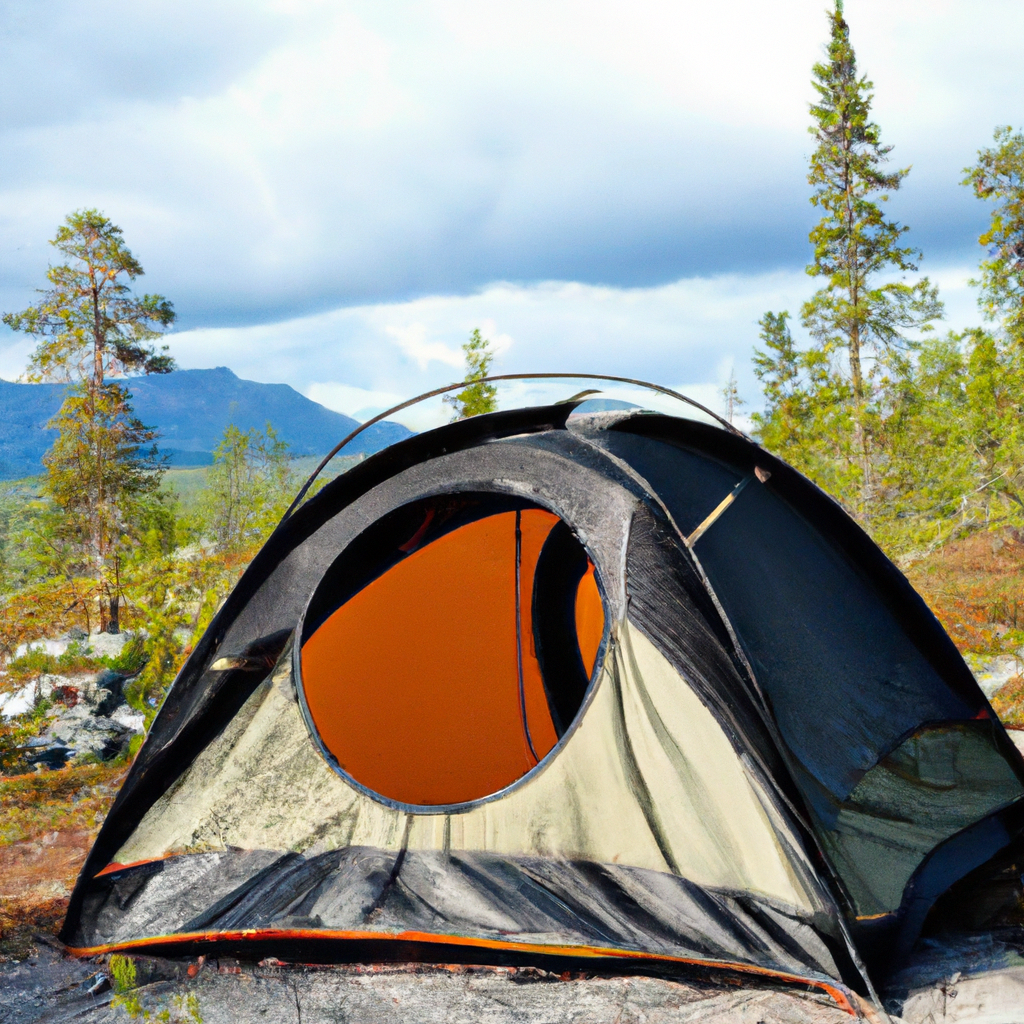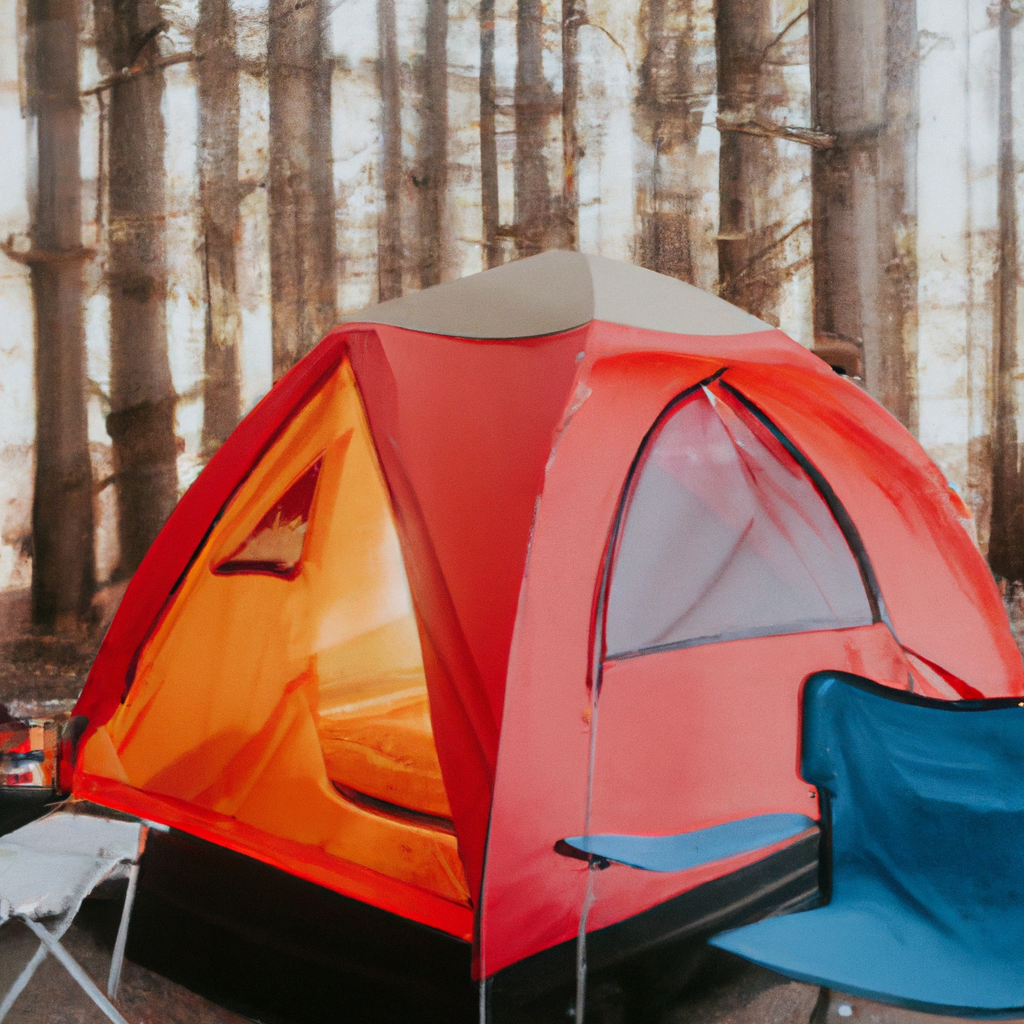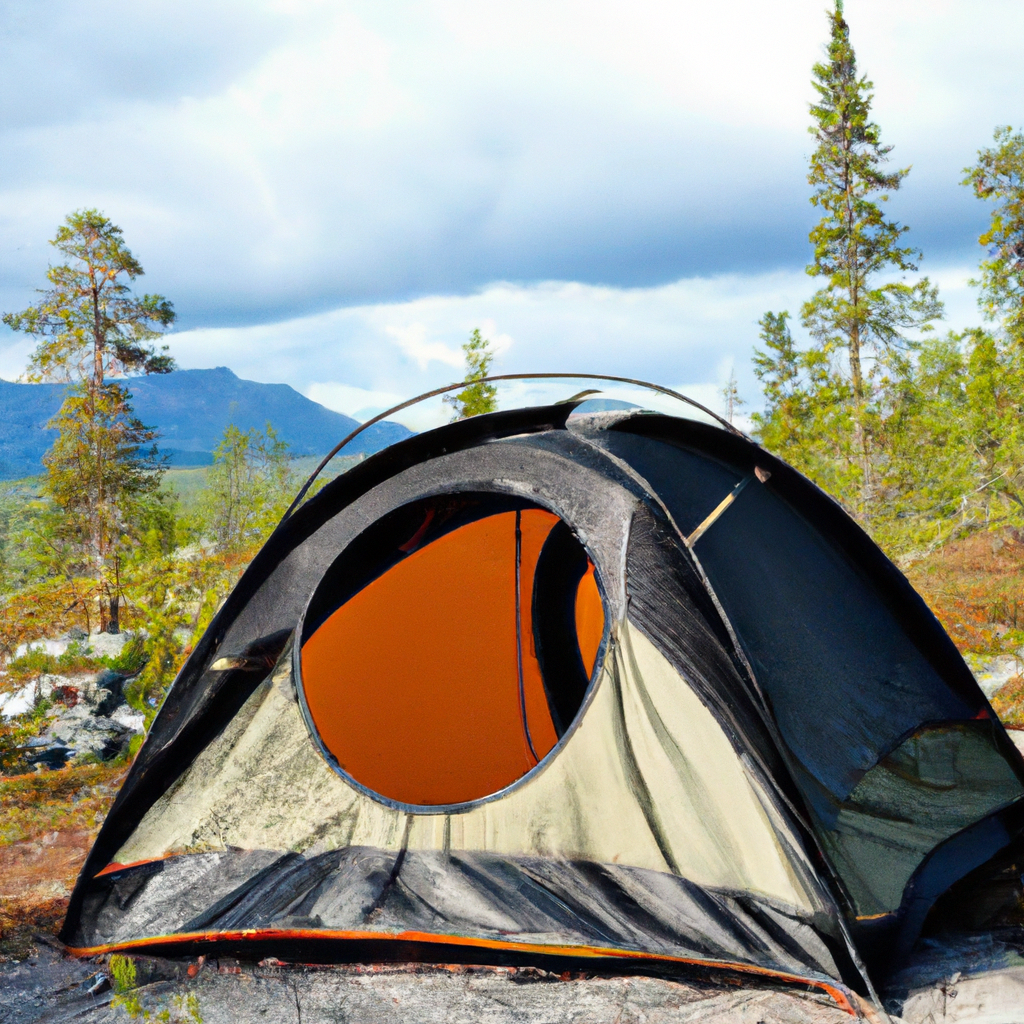Planning a camping trip can be an exciting endeavor, but when it comes to choosing the right tent, it can quickly become overwhelming. With so many options available, finding the perfect shelter to protect you from the elements and provide a comfortable sleeping space is essential. In this article, we will explore some key factors to consider when selecting a tent for your camping adventure, ensuring that you make the best choice for your needs.

Factors to Consider in Choosing a Tent
When embarking on a camping trip, one of the most important decisions you’ll face is choosing the right tent. With so many options available on the market, it can be overwhelming to determine which tent will best suit your needs. In order to make an informed decision, there are several factors you should consider. These factors include the number of people in your group, the seasonality of your camping trips, the type of tent that is best suited for your needs, the weight and portability of the tent, the ease of setup, the tent’s durability, its weather resistance capabilities, the ventilation options available, any additional features that may be important to you, and, of course, your budget. By carefully considering these factors, you can ensure that you choose a tent that will provide comfort and protection throughout your camping adventures.
Number of People
The first factor to consider when choosing a tent is the number of people in your camping group. Tents come in a variety of sizes, ranging from cozy one-person tents to spacious multi-room tents that can accommodate large families or groups of friends. It’s important to choose a tent that provides enough space for everyone to sleep comfortably and store their gear. Keep in mind that the number of people a tent claims to sleep doesn’t always translate to the most comfortable sleeping arrangements. If you prefer a little extra space, it may be worth considering a tent that is designed to accommodate one or two people more than your actual group size.
Seasonality
The seasonality of your camping trips will also play a significant role in determining the right tent for you. Understanding the different camping seasons and the conditions you are likely to encounter is crucial in making the right choice.
Understanding the Camping Seasons
Camping during different seasons presents unique challenges and considerations. If you plan to camp primarily during the summer months, you will want a tent that offers ample ventilation to keep you cool during hot nights. On the other hand, if you’re a dedicated winter camper, you’ll need a tent that can withstand colder temperatures and potentially heavy snowfall.
Tent Rating Systems
To help campers make informed decisions, tent manufacturers often assign a seasonality rating to their products. These ratings typically range from one season to four seasons. One-season tents are designed for warm weather camping and are best suited for use during the summer months. Two-season tents are suitable for spring and summer camping and can handle moderate rain and wind. Three-season tents are the most versatile and ideal for spring, summer, and fall camping, as they offer more protection from the elements. Finally, four-season tents, also known as expedition tents, are designed to withstand harsh winter conditions, including heavy snowfall and strong winds.
Tent Type
Another important factor to consider when choosing a tent is the type of tent that will best suit your needs. There are several different tent types available, each with its own advantages and disadvantages.
Dome Tents
Dome tents are among the most popular tent types and offer great versatility. They are known for their sturdy construction, easy setup, and good weather resistance. Dome tents are designed with two or more poles that cross over each other to create a dome-like shape. This design provides excellent stability and makes dome tents suitable for a wide range of weather conditions.
Tunnel Tents
Tunnel tents are a great choice for campers looking for a spacious and lightweight option. These tents feature a tunnel-like design with curved poles that create a spacious sleeping area. The lightweight construction of tunnel tents makes them easily portable, making them an ideal choice for backpackers and hikers. However, it’s important to note that tunnel tents may not be as stable as dome tents in high winds.
Cabin Tents
Cabin tents are the perfect choice for campers who value comfort and spaciousness above all else. These tents are designed with straight walls and a tall center height, allowing for ample headroom and space to move around. Cabin tents often feature multiple rooms, making them a great option for families or groups who desire privacy and separate sleeping areas. However, due to their size and weight, cabin tents are less portable and may require more time and effort to set up.
Geodesic Tents
Geodesic tents are a popular choice for campers who plan to face challenging weather conditions or camp in more extreme environments. These tents feature a series of interconnected poles that create a strong and stable structure. Geodesic tents are designed to withstand high winds and heavy snowfall, making them an excellent choice for winter camping or mountaineering expeditions. However, their complex pole structure can make setup more time-consuming.
Instant Tents
If you prioritize convenience and ease of setup, an instant tent may be the perfect option for you. These tents are designed for quick and effortless setup, with pre-attached poles that pop into place within minutes. Instant tents are ideal for campers who prefer a hassle-free camping experience, as they eliminate the need for manual assembly. However, it’s important to note that instant tents may not offer the same level of durability and weather resistance as other tent types.
Hammock Tents
For campers looking for a unique and comfortable sleeping experience, hammock tents are a great option. These tents are suspended above the ground, allowing for a comfortable and elevated sleeping surface. Hammock tents are lightweight and compact, making them an excellent choice for backpackers and hikers. However, it’s important to note that hammock tents may be less suitable for campers who prefer to sleep on the ground or need more space for multiple people.

Weight and Portability
When choosing a tent, it’s important to consider the weight and portability of the tent. If you plan on backpacking or hiking to your campsite, a lightweight and compact tent is essential. Look for tents made from lightweight materials and with a compact design that easily fits into your backpack. However, if you’re car camping and don’t have to worry about carrying your tent long distances, you may be able to prioritize other features over weight and portability.
Ease of Setup
The ease of setup is another crucial factor to consider when choosing a tent. Some tents require complex assembly and may involve connecting multiple poles and stakes. If you’re new to camping or prefer a hassle-free experience, look for tents that offer quick and easy setup. Instant tents with pre-attached poles are a great option for campers looking to minimize the time and effort required for setup.
Durability
Your tent is a vital piece of equipment that needs to withstand the rigors of camping trips. Durability is key to ensuring that your tent will last for many adventures to come. Look for tents made from high-quality materials, with reinforced stitching and durable zippers. Consider the overall construction of the tent and evaluate its ability to handle challenging weather conditions.
Weather Resistance
One of the most important factors to consider when choosing a tent is its ability to withstand different weather conditions. You want a tent that will keep you dry during rainstorms and protect you from strong winds.
Waterproofing
Make sure to choose a tent with a waterproof rainfly and bathtub floor. The rainfly is a protective cover that goes over the tent and prevents rainwater from seeping through the fabric. A bathtub floor is designed to prevent water from entering the tent through the bottom. Additionally, pay attention to the tent’s seams and whether they are sealed to safeguard against any potential leaks.
Wind Resistance
If you plan to camp in windy areas or during seasons with high winds, it’s important to choose a tent that can handle gusty conditions. Look for tents with sturdy construction and features like double-walled design and multiple guyline attachment points to increase stability. However, keep in mind that even the most wind-resistant tents have their limits, so make sure to set up your tent in sheltered areas whenever possible.
Snow Resistance
For winter camping or camping in snowy conditions, it’s essential to choose a tent that can withstand snow accumulation and provide adequate insulation. Look for tents with a strong frame and snow skirts that can be secured to the ground to prevent snow from entering the tent. Additionally, consider the tent’s ability to shed snow off the roof to prevent collapse under heavy snowfall.
Ventilation
Proper ventilation is crucial for a comfortable camping experience, regardless of the season. A well-ventilated tent will help prevent condensation buildup and keep the interior cool during hot summer nights. Look for tents with mesh panels or windows that allow for airflow while keeping bugs out. If you plan to camp in humid or rainy conditions, consider a tent with adjustable vents that can be closed when needed.
Additional Features
When choosing a tent, consider any additional features that may be important to you. Some tents come with convenient features like built-in storage pockets, gear lofts, or electrical cord ports. Others may offer removable dividers to create separate rooms or vestibules for extra storage space. Think about your specific needs and preferences and look for tents that offer the features that will enhance your camping experience.
Budget
Finally, consider your budget when choosing a tent. Tents come in a wide range of prices, so it’s important to establish how much you’re willing to spend. Keep in mind that while cheaper tents may be more budget-friendly, they may not offer the same level of durability, weather resistance, or overall quality as higher-priced options. Evaluate the features that are most important to you and choose a tent that fits within your budget while still meeting your needs.
By considering all of these factors when choosing a tent, you can ensure that you make an informed decision and select a tent that will provide comfort, protection, and enjoyment throughout your camping adventures. Happy camping!

